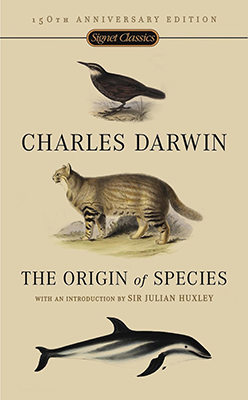The Origin of Species
“The Origin of Species” is a seminal work by Charles Darwin, first published in 1859. This groundbreaking book revolutionized the field of biology by presenting the theory of evolution by natural selection.
In “The Origin of Species,” Darwin introduces the concept of descent with modification, which proposes that all species are related through common ancestry and have evolved over time through a process of gradual change. He argues that the diversity of life on Earth can be explained by the mechanisms of natural selection, whereby organisms with advantageous traits are more likely to survive and reproduce, passing those traits on to future generations.
Darwin provides extensive evidence to support his theory, drawing on observations from fields such as paleontology, biogeography, comparative anatomy, and embryology. He highlights the patterns of variation and distribution seen in living organisms and in the fossil record, which are consistent with the idea of evolution.
One of the key insights of “The Origin of Species” is the concept of adaptation, whereby organisms become suited to their environment through the accumulation of beneficial traits over generations. Darwin argues that natural selection acts as a mechanism for producing these adaptations, driving the evolution of species in response to changes in their environment.
Despite its revolutionary nature, “The Origin of Species” was met with controversy and resistance when it was first published. Its implications for religious and philosophical beliefs about the origin of life and the nature of humanity sparked heated debates that continue to this day.
Overall, “The Origin of Species” remains one of the most influential scientific works ever written, shaping our understanding of the natural world and providing a framework for the study of biology and evolution. Darwin’s ideas continue to inform research in fields ranging from genetics to ecology, and his insights have had a profound impact on our understanding of life on Earth.

